PAMA AIA Course
As a member of PAMA, a division of ATA, you can be involved in The American Institute of Architects (AIA) Continuing Education System (CES). PAMA, has a course that you may present to architects in your area.
AIA plays an active role in the continuing education of its members. The AIA offers valued opportunities for AIA members to maximize their professional skills through effective learning partnerships with firms, continuing education providers, and all AIA components.
The AIA makes specialized information available to registered CES providers as well as to AIA members. PAMA provides this opportunity by being a division of ATA, an official provider of the American Institute of Architecture (AIA) Continuing Education System (CES).
Architects will receive credits for the courses and learn more about the advantages of incorporating shade systems into their designs. To maintain accreditation, architects are required to attain 24 credit hours of continuing education every 2 years. Below is PAMA’s AIA-accredited course that architects can attend to obtain credits to help fulfill architect certification, as well as create mutually beneficial one-on-one relationships with architecture and design firms.
Course #1 PAMA AIA CEU Presentation | 1 LU-HSW
The Fabric Advantage of Shade Systems
For centuries, humans have looked for ways to reduce the impact of the sun on their environment. One highly effective method that has stood the test of time is shade structures that block the sun’s damaging rays. Sustainable, durable textiles for shade are now the industry norm and when combined with modern designs can reduce energy consumption in buildings and minimized their carbon footprints. Fabric shades today provide a low-cost option that can lead to substantial energy cost savings as well as health benefits. Today’s course will provide the participant with an in-depth look at the durability, value and sustainability benefits of fabric shade structures. Case studies combined with technical reports support the lecture.
Learning Objectives
- Identify multiple options that incorporate shade into buildings and their settings to increase ROI.
- Leverage the value of fabric shade structures that reduce heating and cooling costs.
- Explain the positive benefits of fabric shade structures over other material options and that lead to reduce carbon footprints.
- Learn design techniques and installation methods to reduce change orders on projects.
Course #2 PAMA AIA CEU Presentation | 1 LU-HSW
Creative and Functional Applications for Fabrics
The objective of this course is to explore design applications for performance fabrics and their use in shade structures. While technical textiles provide many practical applications such as UV protection, energy savings, branding etc., this course delves more into the aesthetic and form-making aspects of shade structures. Through examples of successful, cutting-edge elements and professionally produced shade structures this course will discuss creative applications of fabric and its benefits from a design perspective.
Learning Objectives
- Identify various non-traditional uses for fabric, incorporating functional shade and creative design.
- Explain how to take ideas from concept to the practical with appropriate methods of construction.
- Discuss out of the box visuals.
- Provide examples of COVID-19 impact on the outdoors and creative use of outdoor spaces.
INTERESTED IN THESE COURSES?
As a member of ATA’s Professional Awning Manufacturers Association this course is available for you to present to your local architectural firm.
Contact
Jill Newman
+1 651 225 6953
jill.newman@textiles.org
 TEXTILES.ORG
TEXTILES.ORG 


